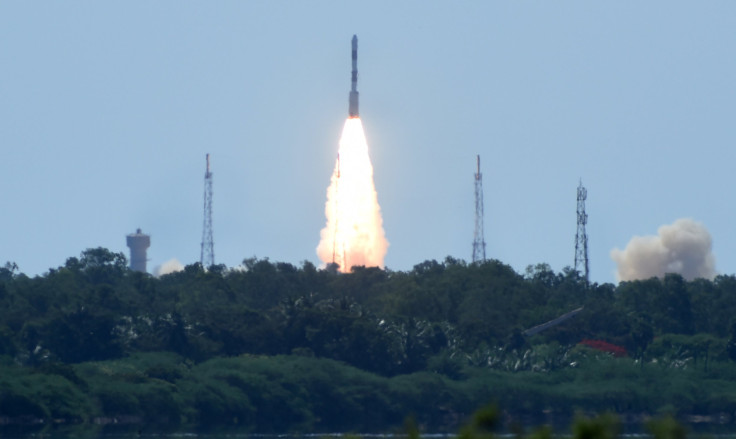India Space Mission: ISRO Sends 20 Satellites On One Rocket In Country’s Biggest Such Launch

India successfully launched 20 satellites on a single rocket Wednesday, marking the biggest such launch in the country's history. The Indian Space Research Organization’s (ISRO) Polar Satellite Launch Vehicle (PSLV)-C34 mission took off from the island of Sriharikota in the southeastern coast.
The 320-ton PSLV-C34 was carrying 17 satellites from Canada, Indonesia, Germany and the United States. The main passenger was a 727 kg (1602 pounds) Indian Earth observation satellite called Cartosat, capable of taking high-resolution images. The rocket was also carrying two student satellites from Indian universities.
"The imagery sent by the Cartosat-2 series satellite will be useful for cartographic applications, urban and rural applications, coastal land use and regulation, utility management like road network monitoring, water distribution, creation of land use maps, precision study, change detection to bring out geographical and manmade features and various other Land Information System (LIS) and Geographical Information System (GIS) applications," ISRO said in a statement.
ISRO Chairman A.S. Kiran Kumar said after the launch, "With this mission, we have launched the current generation Earth observation satellite along with 17 satellites from foreign countries.”
The rocket lifted off from the Second Launch Pad in Satish Dhawan Space Centre, in the Indian state of Andhra Pradesh, at 9:26 a.m., local time, Wednesday (11:56 p.m. EDT Tuesday).
Indian President Pranab Mukherjee and Prime Minister Narendra Modi tweeted their congratulations to the ISRO team on their historic mission.
Heartiest congratulations to ISRO Team on successful launch of PSLV-C34 carrying a record 20 satellites #PresidentMukherjee
— President Mukherjee (@POI13) June 22, 2016
20 satellites in a go! @isro continues to break new barriers. Hearty congratulations to our scientists on the monumental accomplishment.
— Narendra Modi (@narendramodi) June 22, 2016
Before the launch, Kumar reportedly said that launching 20 satellites in a single mission was like “allowing birds to fly in space.”
He added that, “Each of these small objects that you are putting into space will carry out their own activity, which is independent of the other, and each of them will live a wonderful life for the finite period for which they have been designed.”
According to local news network NDTV, ISRO has launched 74 satellites for foreign vendors from about 20 countries so far earning about $100 million.
© Copyright IBTimes 2025. All rights reserved.





















